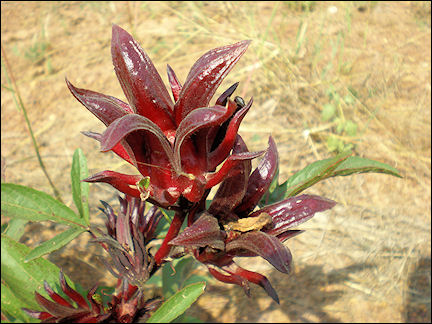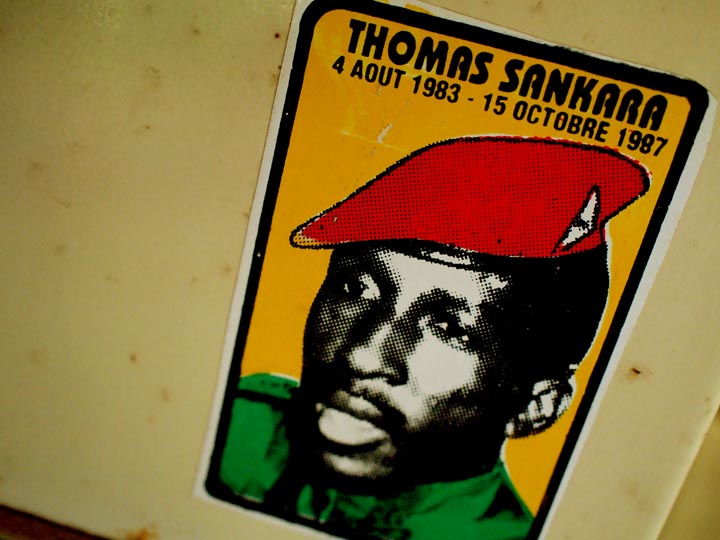Christmas (January 7):
It celebrates the birth of Jesus Christ, but the date coincides with the
Orthodox and/or Coptic calendar. During
the advent season that leads up to Christmas (from Nov 25 – Jan 6), most people
eat a vegan diet. On Christmas Eve, they have a special Christmas service at
church starting around 10 pm and going until about midnight. Some services last much longer. On
Christmas Day, people spend time with their families and friends, eating a
lavish meal of everything they fasted from for the past 43 days. There is a certain type of Christmas
treat called kahk, which is like a
sweet biscuit, and children will sometimes leave these for Baba Noël (Santa) as they wait for him to come
through their windows and leave presents.
Even though only about 10% of the population is Christian, it's also
celebrated by everyone who enjoys the Christmas treats sold in stores and use
the day as a secular holiday.
Birthday of the Prophet
Muhammad (varies, January/February): Also called Mawlid. In Egypt, the term Mawlid is also used
for birthdays of Sufi saints as well.
Celebrations usually last a week, filled with prayer and some people use
it as a day for fasting. However, at the end of the festival, it’s celebrated
with a feast of food and is known for its variety of sweets. A type of small elaborately dressed doll
is given as gifts as well for Mawlid.
National Police Day /
2011 Revolution Day (January 25): This
holiday is celebrated in reminiscence of when Egyptian police refused British
demands to hand over their weapons and exit the police station in 1952. Fifty police officers were killed and
more were injured in these clashes.
This holiday was set in place to honor those that were killed.
Protesters used this day in 2011 to start the 2011 Revolution to address issues
of police brutality and other issues.
Orthodox Easter (varies,
April): This holiday essentially celebrates the Easter holiday for the same
reason as non-Orthodox Christians do, however it’s celebrated on the Coptic
calendar. For most Copts, fasting on a vegan diet lasts for the entire 55-day
Lent period. Easter Mass is almost always attended, and the afternoon is spent
eating lavish meals and visiting with family and friends. However, in recent
years, there have been many clashes between the Muslims and Christians in Egypt
and the Easter sermons have been addressing the hope for peace.
Sinai Liberation Day
(April 25): This holiday
commemorates the withdrawal of the last Israeli troops from the town of Taba on
the Sinai Peninsula. Most people spend the day visiting zoos and parks, taking
strolls along the Nile, or visiting historic places to study about Egyptian
history.
Labour Day (May 1): Labour
Day is a day for celebrating the worker and addressing labor issues. 2011 was the first year that there was
a Labour Day with independent unions.
Several of the issues at the heart of the 2011 Revolution were labor
related. Egyptian laborers are
demanding the establishment of a minimum wage, unemployment rights, and other
issues.
Eid al-Fitr (varies, July):
Eid al-Fitr is the celebration that falls at the end of the fasting month of
Ramadan. The day usually starts
off with a small snack or light meal, and then followed by prayers and a grand
extravagant meal in the evening.
Children will normally get gifts and new clothes especially for the
holiday. Children will also
receive a small sum of money used to spend on the Eid festivities. It’s a time
for families to spend together, usually at parks, zoos, amusement parks,
museums, etc.
Revolution Day (July
23): This holiday commemorates the Revolution of 1952. A group of clandestine revolutionaries
called the Free Officers Movement started the military coup. Common activities for this day often
include military parades and nationalistic themed city celebrations. This is
the biggest secular holiday in Egypt.
Eid al-Adha (varies,
October): At the end of the annual Hajj in which many Muslims travel to Mecca
(Saudi Arabia) for special prayers. But there are many people who do not or are
not able to make the trip.
However, there are three days of celebrations for the Eid, also known as
the Feast of the Sacrifice. This celebration has its basis in the sacrifice
that Abraham faced in killing his own child for God but was reprieved at the
last minute. One common tradition
is to slaughter an animal (usually a cow, sheep, or goat) and keep 1/3 of the
meat for yourself, giving 1/3 to your family, and offering 1/3 to charity or to
the poor.
Armed Forces Day
(October 6): On this day, Egyptian
and Syrian forces launched a surprise attack on Israel to regain the Sinai
Peninsula in 1973, which is the beginning of the October War (or sometimes
called the Yom Kippur War).
Islamic New
Year/Muharram (varies, October): It celebrates the beginning of the Islamic
calendar, and some people celebrate it the entire first month. Since Egyptian Muslims are primarily
Sunni, I read that Sunni Muslims celebrate Muharram as the victory of Moses
over the Egyptian Pharaohs (which I don’t understand why Egypt is mostly Sunni
and they celebrate Moses’ victory over their own kings. Maybe someone can
explain this to me.) Many people
do fast on this day, and for Sunnis, this is a day of celebration. Other than these things, it’s more of a
quiet holiday, not really one with many celebratory traditions.
Other holidays that are
celebrated yet businesses and government offices generally remain open include
the following: New Year’s Day (January 1), Sportsman’s Day (March 3), Mother’s
Day (March 21), Evacuation Day (celebrating when British forces finally left Egypt,
June 18), Flooding of the Nile (August 15), Egyptian Naval Day (celebrating the
sinking of an Israeli destroyer in 1967, October 21), Suez Day (celebrates the
resistance of Egyptians in Suez during the October War, October 24), Victory
Day (celebrates the end of Tripartite Aggression in 1956, December 23).
Up next: art and
literature








